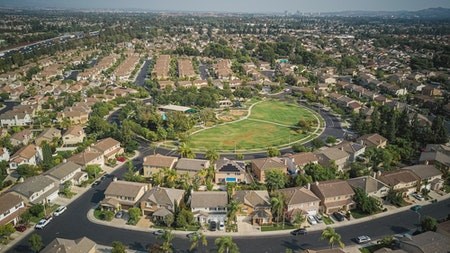One of the characteristics that differentiates successful agents from the not so successful is the ability to actively listen to what clients are telling them. Active listening will enable you to put your finger on precisely what buyers are looking for in a home. When it comes to sellers, you will pick up nuances that may escape less attentive agents. For instance, are the sellers intensely private people who dislike having prospective buyers in their home, or are they the sociable sort who welcome new faces?
When it comes to family buyers and sellers, it’s even more important to hear what your clients are saying. What might seem trivial to most people could be important factors that could help family buyers decide whether or not to buy into a certain kind of a neighbourhood.
Data
Most estate agents have access to Lightstone Property's suburb reports, which provide detailed information about the age profiles of recent buyers and sellers in the area and the average periods of ownership. This information is invaluable in providing prospective buyers information on the profile of the suburb they are considering buying into.
If most people in the suburb have owned their homes for many years, buyers can reasonably expect to have the same neighbours for a long time. If properties generally change hands frequently, this could signal problems in the neighbourhood, such as high crime figures or too many negligent landlords or owners.
The age profile of owners in a suburb can also be useful to family buyers. However, some owners might rent out their properties, so ownership ages are not necessarily the same as the ages of their tenants who are actually living in the neighbourhood.
Criteria
Modern parents have to ensure the property they buy meets the needs of their children as well as their own.
Location. The first thing agents need to emphasise to them is that you can change almost anything about your home except its location, so choosing the right neighbourhood is essential.
Safety and security. Children need safe places to play and visit with their friends. This is why gated developments and closed-off neighbourhoods all over the country are so popular with family home buyers.
Good schools should be close to home. In addition to providing a good education, most parents with school going children would like to minimise the time spent travelling to and from school for sporting and other activities.
Proximity to work. A major consideration for most parents is being able to spend more time with their children and less time commuting to and from work. The Covid-19 pandemic has made this an even more important factor in choosing a family home.
Other families. Most families prefer to live in a suburb where many of the neighbours are at a similar stage of life, where children can all grow up together.
Room to grow
Family-friendly neighbourhoods generally have more spacious homes with gardens where children can play. Gated complexes often have communal areas where children can be safe and secure even without adult supervision.
Features family buyers generally look for are:
Storage space. Children generally come with more belongings, such as bicycles and sporting equipment. This means that family buyers need more long-term storage spaces and plenty of easy-access storage like built-in cupboards. It is also really handy to have an additional room that can be used as either a music and computer room or a playroom for older children.
Floorplan: Family homes with the master bedroom at one end of the house with children’s bedrooms at the other usually appeal to parents. For buyers with young children, you could suggest that they install a baby alarm so that they can keep an ear open for cries in the night.
Family space. A well-equipped open plan kitchen is a favourite gathering place for most families. It’s also a good idea to show family buyers homes with large informal living spaces that the whole family can enjoy together.
Extra room. Buyers with older families might also need extra space for grandparents to visit or even live.
Finances
It is essential for family buyers, in particular, to be realistic about what they can afford. They need to take into account the additional expenses necessary when raising children, and saving for long-term goals like tertiary education or their own retirement needs to be taken into account.
This will affect the home loan size for which parents can qualify and what they can afford to pay for the family home. It's helpful to suggest that they consult a reputable mortgage originator to establish their property budget before they go house hunting.





